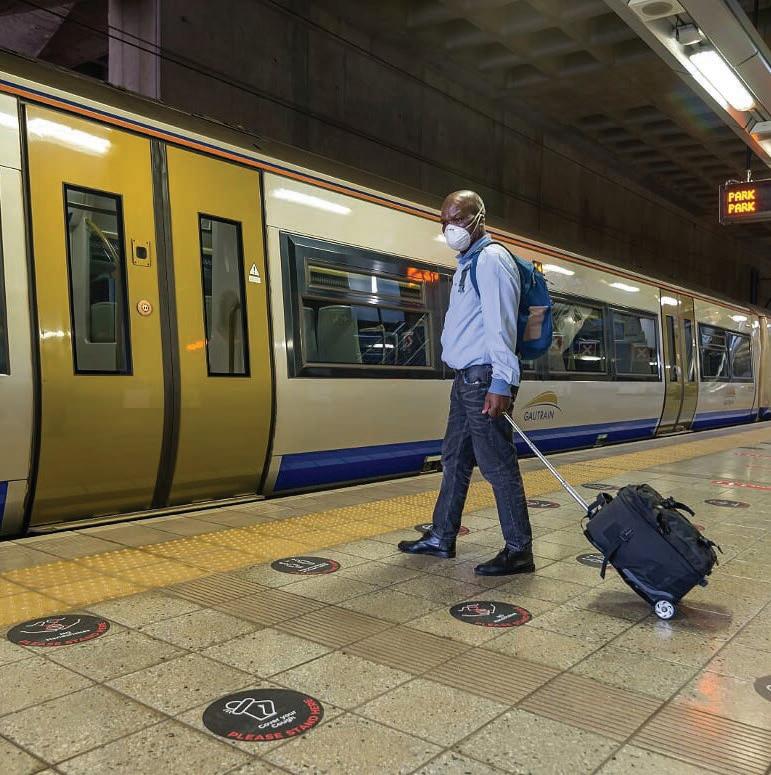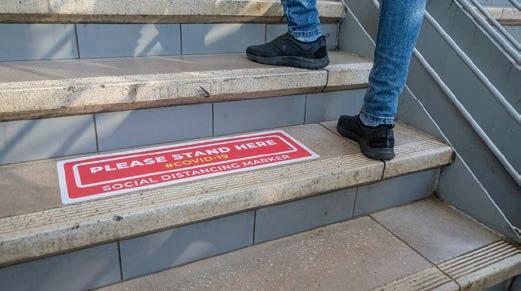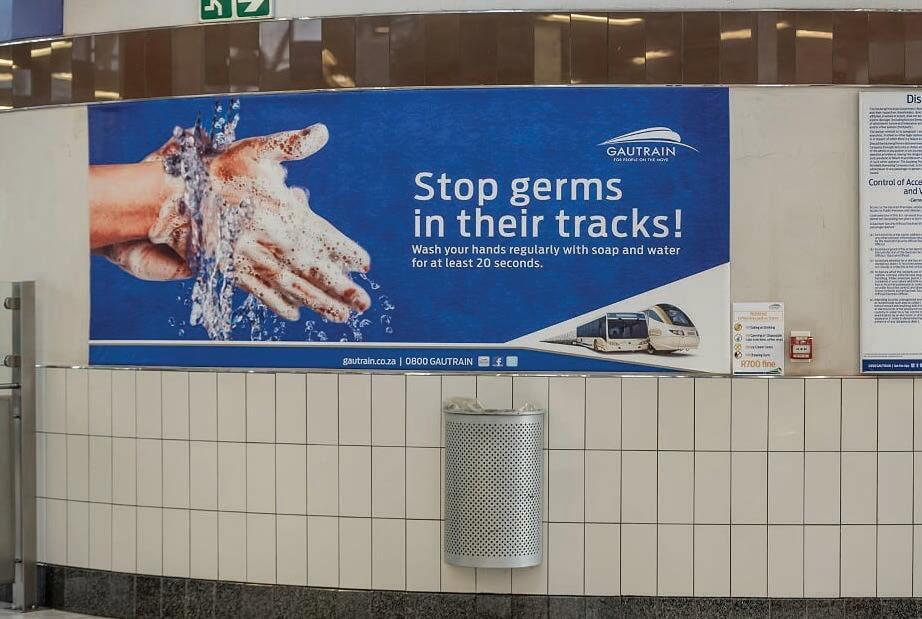
1 minute read
Safe and efficient travel during Covid

After 10 years of operation, with close to 125 million passenger train trips and 38 million bus passenger trips, Gautrain continues to be the smart way to travel for people on the move.
Advertisement
Gautrain’s service offering is continuously monitored and evaluated to ensure it continues to offer a safe, reliable and convenient public transport service. the ongoing global Covid-19 pandemic and resultant lockdown regulations have significantly changed our travel behaviours and needs. Cognisant of these changes, Gautrain has developed a responsive action plan that was approved by transport Minister, Fikile Mbalula during his recent visit.
The following health and safety measures are some of the remedial actions implemented to prevent the spread of Covid-19 and ensure Gautrain is safe and efficient:
There are alcohol-based hand sanitisers at all stations, buses and midi-buses
Regular cleaning protocols are in place, with trains, buses and midi-buses cleaned and disinfected at regular intervals throughout the day.
Special cleaning staff are deployed at stations to wipe down and disinfect touch points such as handrails, fare gates and other surfaces.
To help ensure that social distancing rules are adhered to, all stations have floor decals to assist passengers keep clear and maintain the required distances.
Certain seats on trains, buses and midi-buses have been cordoned off to allow for social distancing. ¡ t
The use of face masks is compulsory on Gautrain, just as it is on all modes of public transport and in public areas. All passengers and staff are required to wear a face mask at all times – at stations and on board trains, buses or midi-buses. Security guards monitor this. ¡
All staff in direct contact with customers are screened for Covid-19 ahead of resuming their normal duties. Staff are also screened for fever throughout the day. ¡
All staff members are also required to wear the respective personal protective equipment, as stipulated by government regulations.






